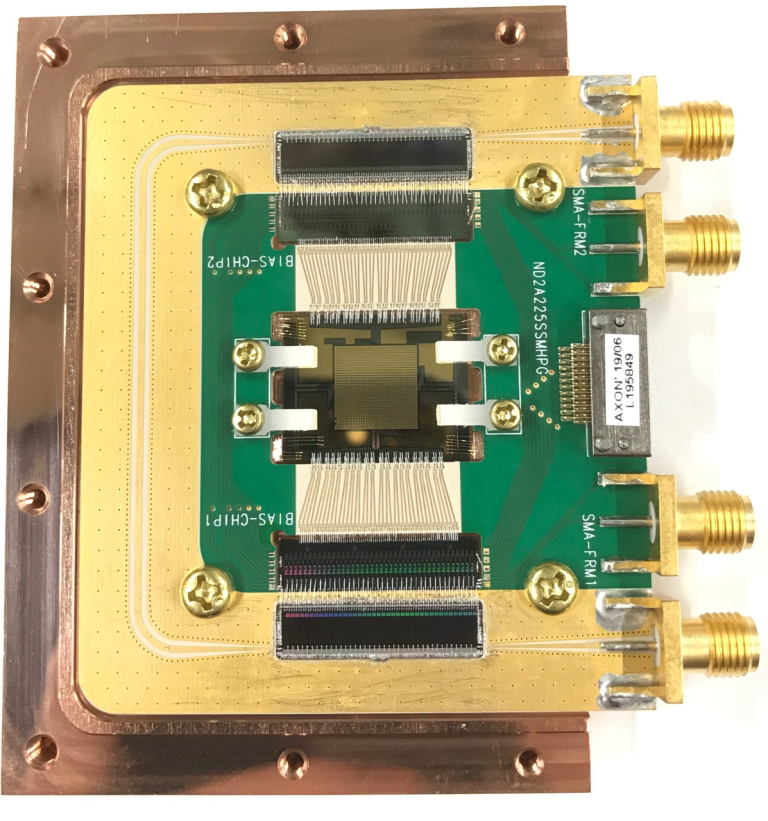Over the years, SRON has developed increasingly sensitive Transition Edge Sensors (TES) for space missions such as SPICA and Athena. One of those TES detector arrays, developed as backup X-ray microcalorimeters for Athena, has now played a vital role to demonstrate a new readout technology developed at the National Institute of Advanced Industrial Science and Technology (AIST) in Japan. This technology is called low-noise microwave SQUIDs multiplexed readout. The research results are published in Applied Physics Letters.
The X-IFU instrument of the Athena mission contains about 3000 pixels of X-ray TES detectors, to be read out using Time Domain Multiplexing or Frequency Domain Multiplexing as a back-up. Both readout technologies employ conventional, dissipative SQUID amplifiers. Future space missions aim at more than ten thousand TES detector pixels, a number that seems to be beyond the capability of existing readout technologies. The new microwave SQUIDs readout is a promising candidate to read out far larger arrays than what conventional SQUIDs are capable of. SQUIDs are superconducting quantum interference devices.
38 microcalorimeters simultaneously
Dr. Y. Nakashima and his AIST team members, in collaboration with JAXA and the Tokyo Metropolitan University, have reached a milestone to demonstrate the new readout technology using an X-ray TES array from SRON. They read 38 microcalorimeters from the array simultaneously, which is called multiplexing, and measured a spectral resolution ranging from 2.79 to 4.56 eV at 5.9 keV using an Iron-55 source.
multiplex factor
An important feature of detector readout technologies is the multiplexing factor: the total number of pixels read by one low-noise amplifier. Applying a microwave frequency comb to an array of detector pixels allows for a high multiplexing factor if the pixels are coupled to a common transmission line where the transmitted signals are read out with one low noise High Electron Mobility Transistor (HEMT) amplifier. An HEMT amplifier can have a large bandwidth of four gigahertz or more, so the multiplexing factor will be considerably higher than in existing TES readout technologies.
SRON has recently received funding from the EU program AHEAD II to start this new microwave readout technology. SRON will work in a close collaboration with the National Metrology Institute of Germany (PTB), while the AIST remains as a partner.
Publication
Y. Nakashima , F. Hirayama , S. Kohjiro , H. Yamamori , S. Nagasawa , A. Sato , S. Yamada, , R. Hayakawa , N. Y. Yamasaki , K. Mitsuda , K. Nagayoshi , H. Akamatsu , L. Gottardi , E. Taralli , M. P. Bruijn , M. L. Ridder , J. R. Gao, and J. W. A. den Herder, “Low-noise microwave SQUID multiplexed readout of 38 X-ray transition-edge sensor microcalorimeters”, published online (09-22-2020,) in Applied Physics Letters (Vol.117, Issue 12).



